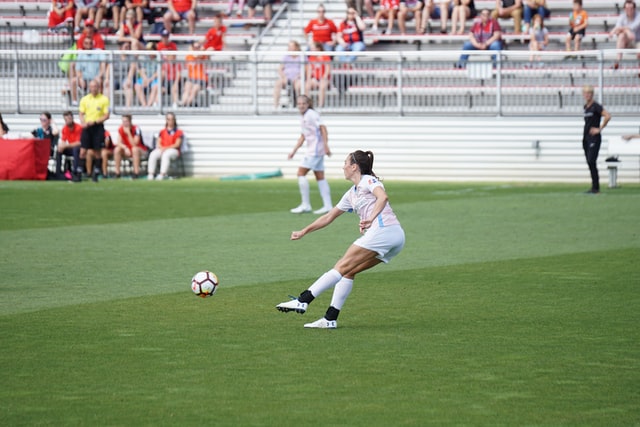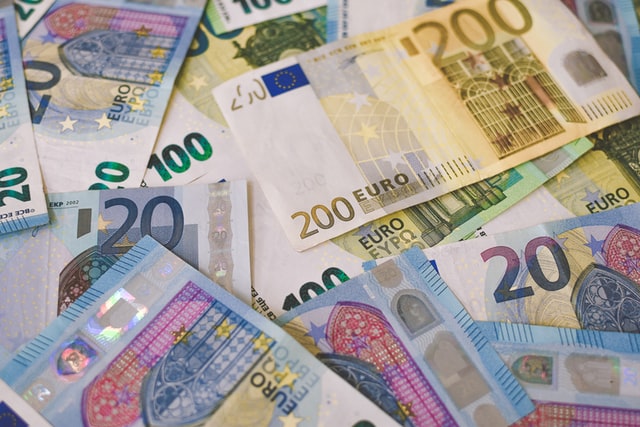Like many other sports, soccer allows the clubs to exchange players between each other. These exchanges are known as transfers in the soccer world, and most of the transfers require the buying club to pay a transfer fee.
So in simple words, a transfer fee in soccer is the money that is paid by the club that wants to sign a player from another club. Transfer fees vary depending on how good the player being transferred is, how much value the player can add to the buying team, and on some other factors.
If you have been following soccer for a while, then you already know that the amounts of money paid as transfer fees can get crazy when it comes to soccer.
You might have already heard about Neymar’s insane transfer fee to PSG even if you aren’t even a soccer fan. Paris Saint-German (PSG) literally paid 263 million dollars as a transfer fee to get Neymar from FC Barcelona.
This amount of money was a record breaker when it comes to soccer transfer fees.
So you get the point, transfer fees can be extremely expensive. BUT, some of them are completely for free.
Yes, you read that correctly. At the end of the day, a transfer fee is just an offer for a club to break its contract with a certain player for a certain amount of money.
However, once the player’s contract with a club comes to an end, the player becomes a free agent and they will be free to join any club that is interested in signing them. The new club will not have to pay a single penny on transfer fees.
You can learn much more about free agents in this article if you are interested.
How are the transfer fees determined?
Transfer fees in soccer are usually determined after a series of negotiations between the different parties involved in the transfer.
In other words, it all depends on how much money the selling club wants, and how much money the buying club is willing to pay.
But what about the player himself/herself? In general, most professional soccer players have an agent that represents them when it comes to negotiating deals with different clubs and discussing transfer fees and so on.

When a club is interested in signing a player that already belongs to another club, then the interested club will usually contact the agent of the player.
Negotiations will take place over how much the interested club is going to pay. In general, agents will try their best to increase the transfer fee as much as possible, because they usually get a percentage of that transfer fee for their services.
The selling club also enters the negotiations because they are the ones that currently own the player after all. As you might have already guessed, the selling club will also try their best to increase the transfer fee of the player if they are indeed willing to sell them.
The result of the negotiations between the different parties will determine what the transfer fee is going to be.
What if the club that owns the player refuses to sell?
There are cases when the club that owns the player absolutely refuses to sell the player because they think that the player is extremely valuable for the club.
Does this mean that the transfer will not happen regardless of how large the transfer fee is?
Well, not exactly.
Many of the contracts between the soccer clubs and their players have what is called a release clause. The release clause is an amount of money that can break the contract between the player and the club even if the club does not want to end the contract at all.
If a club absolutely wants to buy a certain player, they might be able to, but the transfer fee will have to be the release clause value itself.
One thing to note here is that release clauses or payouts are usually very high. In other words, they are usually more than what the player is actually worth in the market.
So, negotiations in general are one of the main deciding factors of how much a transfer fee is going to be because not all clubs can afford to pay the high release clauses of the players that they are interested in buying.
Do soccer players get money from transfer fees?
It all depends on the contracts and the negotiations between the clubs and the agent of the player.
In general, it is less likely to see the player getting a percentage of the transfer fee. The agents are the ones that usually get a percentage from the transfer fee. But this does not mean that the players can’t get any money from the transfer fee.
Some players manage to get a percentage from the transfer fee for themselves. Again, it all depends on what the different parties agree on during the transfer negotiations.
However, players usually get a signing bonus as an incentive. In other words, the club that wants to buy the player offers them a bonus just for signing the contract with the club.
So in other words, the players do get some money when they get transferred to another club, but the money is usually separate from the transfer fee itself.
What the players usually care about the most is their salary at the new club. That’s what the agent of the player tries to negotiate the most. The agent will try their best to raise the salary of the player that they represent as much as they can.
So in general, the signing bonus and the new salary are the money that the transferred player is going to get after the transfer takes place.
CONCLUSION
In conclusion, I would say that transfer fees are fundamental to the soccer game. After all, the soccer clubs are businesses, and businesses need money to stay around and grow.
In general, the transfer fees are growing by the year. A lot of people including myself would have never expected that the transfer fees would reach the levels that they are currently on these days.
But that’s just how business works. The more famous the soccer game becomes, the more money will be poured into the game. With that said, I will end this article here.
If you are interested in reading more, you can check this article that discusses soccer loans in great detail.

